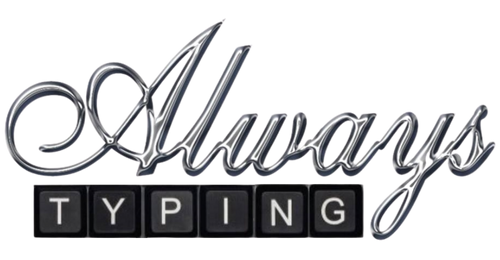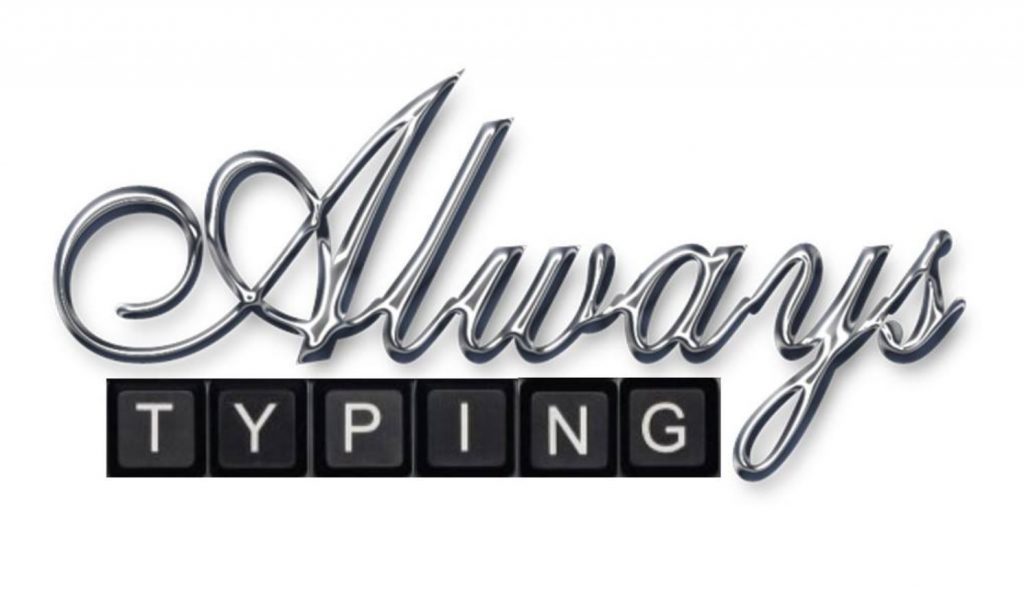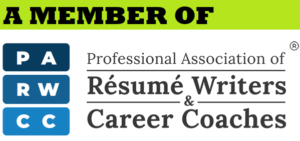In today’s competitive job market, securing a new job often entails embarking on a journey that spans around six weeks—from the initial application submission to the long-awaited offer letter. However, as candidates edge closer to the finish line, there’s a crucial juncture that demands their attention: the employment background check. This meticulous process serves as the final gateway, determining the bridge between aspiration and accomplishment.
Employers recognize that making the right hiring decisions is paramount, as each addition to their team forms an integral piece of the larger organizational puzzle. With a plethora of candidates vying for the same opportunities, employers are investing more than ever in methods to ensure that their selections are not just proficient but also a seamless fit within their organizational fabric. Background checks have emerged as a strategic tool in this endeavor, enabling employers to gain a more holistic understanding of candidates beyond their resumes and interviews.
The process of conducting employment background checks serves as an instrumental component in enabling employers to assess candidates in terms of trustworthiness, reliability, and alignment with company values.
The employment background check, once perceived as a formality, has now transformed into a crucial determinant of a candidate’s trajectory. The journey doesn’t end with a job offer; it commences with the trust an employer places in their new hire’s potential to positively impact the company’s journey ahead.
Table of Contents
ToggleUnderstanding Employment Background Checks
Employment background checks scrutinize various aspects of your history, including employment, credit, driving records, and criminal past. Honesty on your job application is crucial, especially regarding job dates and titles. Even small discrepancies can impact your candidacy.
Employment History
Even seemingly minor discrepancies can have substantial implications for an applicant’s credibility. Consider a scenario where an applicant extends the duration of a previous job by a few months to fill a gap in their resume. While this might appear innocuous, such embellishments can cast a shadow of doubt over an applicant’s integrity.
Why is precision in employment history so vital? Employers often view your job history as a testament to your reliability and consistency. A candidate who meticulously documents their work experience showcases qualities of thoroughness and conscientiousness, traits that resonate positively with prospective employers.
The ATS Detective: How Applicant Tracking Systems Unveil Discrepancies
Enter the realm of Applicant Tracking Systems (ATS)—software employed by many companies to streamline their recruitment processes. These digital detectives scrutinize resumes for keywords, qualifications, and, yes, employment details. When it comes to dates, ATS systems are more than just a digital calendar; they are the gatekeepers of accuracy.
ATS systems are designed to highlight inconsistencies, making it increasingly challenging for discrepancies to fly under the radar. If an applicant’s claimed employment dates don’t align with the data inputted, these systems raise red flags that can trigger further scrutiny. This means that not only is precision essential for portraying yourself accurately, but also for navigating through these automated gatekeepers.
Applicants often underestimate the ATS’s role in the selection process. In a competitive job market, where numerous resumes vie for attention, ATS systems serve as the first line of defense. By providing accurate and precise employment history, you’re ensuring that your resume passes through this initial screening hurdle and lands in the hands of hiring managers.
Credit History
The examination of credit history during an employment background check goes beyond a mere financial inquiry—it offers employers a glimpse into your financial responsibility and decision-making skills. While credit scores are not typically included, this inspection provides valuable insights, particularly for roles with financial responsibilities, access to sensitive data, or decision-making authority on behalf of the company.
Roles with Financial Responsibilities
For positions that involve financial management, such as accountants, financial analysts, or roles directly handling transactions, credit history becomes a pivotal consideration. Employers seek candidates who can aptly manage financial matters, both on a personal and professional level. A positive credit history implies a track record of managing finances prudently, which can extend to fiscal responsibility within the organization.
Safeguarding Sensitive Data: Trust and Confidentiality
In an era defined by data breaches and cyber threats, protecting sensitive information is paramount. Roles that involve access to confidential data, customer information, or trade secrets require individuals of utmost integrity. Employers recognize that financial pressures can potentially sway an individual’s decisions. A thorough credit history examination helps ensure that the candidate’s financial standing is not vulnerable to outside influence, safeguarding against potential security breaches.
Making Crucial Financial Decisions: Integrity in the Spotlight
Consider roles where individuals are entrusted with making financial decisions on behalf of the company, such as procurement managers, executives overseeing budgets, or those negotiating contracts. A history of prudent financial management showcased through credit history signifies a candidate’s ability to make sound judgments, free from personal financial distractions.
A Holistic Perspective: Financial Fitness and Company Well-being
In essence, credit history checks provide a window into an applicant’s financial fitness. By delving into how one manages financial obligations, employers can glean insights into their overall responsibility, integrity, and ability to uphold fiduciary duties. In a world where corporate transparency and ethical conduct are valued, this assessment is pivotal.
Employers acknowledge that credit history is a multifaceted metric and that individuals can encounter challenges that impact it. What matters is transparency. Candidates who proactively address any potential concerns or provide context behind credit history irregularities display accountability—a quality that resonates positively with employers.
Driving Records
In certain industries and job roles, a clean driving record serves as a critical marker of reliability, responsibility, and professionalism. While often associated with roles requiring physical mobility, its implications extend far beyond simply operating a vehicle. From delivery services to sales roles entailing frequent travel, a pristine driving record not only underscores an individual’s commitment to safety but also reduces liability for the employer.
Delivery Services: Safeguarding Timely Deliveries and Customer Trust
Imagine a scenario in the realm of delivery services—a domain where time-sensitive shipments and customer expectations collide. A delivery driver’s clean driving record isn’t merely a reflection of their ability to navigate roads; it’s a testament to their capability to uphold punctuality, ensure safe transportation of goods, and preserve customer trust. A history free of accidents or traffic violations showcases dedication to both the task at hand and the safety of the community.
Sales Roles: Beyond the Horizon of Horizons
Sales roles that involve frequent travel, whether locally or across regions, demand individuals who are not only adept at sealing deals but also at representing the company’s image. A clean driving record here is more than a mere qualification—it’s an embodiment of reliability. Clients and prospects entrust their time and investments to sales representatives. A spotless driving history assures them that their partner is not only a persuasive negotiator but also a responsible individual who places safety at the forefront.
Liability Reduction: The Weight of Responsibility
A clean driving record isn’t solely a personal triumph; it’s a strategic asset for employers. In roles where employees are required to be on the road, every instance of safe driving contributes to minimizing the potential for accidents or liabilities. With each untarnished mile, the employer’s exposure to risks diminishes, leading to potential financial savings and the assurance that their representatives adhere to the highest standards of professionalism.
Upholding the Company’s Image: Reflecting Core Values
Whether it’s the logo on a delivery truck or the badge on a salesperson’s lapel, every interaction becomes an opportunity to reflect the company’s values. A clean driving record aligns with attributes companies hold dear—reliability, trustworthiness, and an unwavering commitment to safety. In an era where brand perception is molded by every touchpoint, employees with pristine driving records become ambassadors who uphold the company’s image.
Criminal History
Companies assess criminal history with a job-specific perspective. They recognize that a one-size-fits-all approach doesn’t do justice to the complexities of individual cases and the nature of different roles. Let’s explore how companies tailor their consideration of criminal history based on job requirements, while upholding transparency and fairness.
Role-Specific Considerations: A Multidimensional Assessment
Companies take into account the nuances of a candidate’s criminal history vis-à-vis the responsibilities of the role in question. For instance, a candidate applying for a financial position might undergo scrutiny for financial-related offenses, given the fiduciary nature of the role. However, that same history might be less relevant for a role that doesn’t involve financial decision-making.
Disclosure and Honesty: The Keystone of Trust
In the realm of criminal history, disclosure and honesty stand as pillars of trust-building. Companies often ask candidates to divulge their criminal history, empowering individuals to share their stories and context. While certain convictions might raise concerns, companies appreciate candidates who demonstrate accountability and willingness to address past mistakes.
EEOC Guidelines: Fostering Fairness and Equality
The Equal Opportunity Commission (EEOC) lays down guidelines that prevent discrimination based on criminal history. They recognize that blanket exclusions can disproportionately impact certain groups. For instance, if two candidates from different backgrounds possess identical criminal records, denying employment to one while offering it to the other would constitute discrimination.
Fair Chance: Redefining Opportunity
Many companies are embracing “fair chance” policies, designed to provide candidates with criminal records an opportunity to reintegrate into the workforce. These policies encourage employers to consider the qualifications, skills, and growth potential of the candidate, rather than being solely defined by past mistakes.
Why Employers Opt for Background Checks
Contrary to misconceptions, employers aim to verify information, not to find flaws. Background checks validate the accuracy of the details you’ve provided, building trust in your candidacy.
Timing and Process:
- For non-federal jobs, the background check usually takes a week.
- Federal positions entail a more extensive process, spanning a few months.
- The results won’t yield an instant response. Employers review before reaching out.
The Aftermath: Upon receiving your background check, hiring managers need time to review. A successful outcome might result in a job offer via email. Remember to give them sufficient time before reaching out.
Your Rights and Transparency: Federal laws protect your rights during background checks. The Fair Credit Reporting Act requires permission for credit checks and provides copies of reports if not hired. The Federal Trade Commission ensures you receive a copy of the consumer report used, enabling you to dispute inaccuracies.
Maximizing Your Background Check Period
As you await the outcome of your background check, a period of anticipation presents a valuable opportunity to stay proactive and well-prepared. Embrace this waiting game with a strategic mindset, employing actions that can bolster your chances and position you for success, whether it’s responding to follow-up questions or delving into the company culture.
1. Anticipate Follow-up Questions: Prepare for Transparency
Use this time to consider potential follow-up questions that might arise from your background check. If there are aspects of your history that could warrant further explanation, craft concise and honest responses. Being proactive in addressing any concerns demonstrates your commitment to transparency and accountability.
2. Research the Company Culture: Dive Deeper
While you wait, use LinkedIn or other online tools to dive deeper into the company’s culture and values. A deeper understanding of the organization’s ethos equips you to discuss how your skills and values align with theirs should you receive the job offer. Familiarize yourself with recent company news, projects, and achievements to engage in informed conversations.
3. Enhance Your Skills: Invest in Self-Improvement
Why not utilize this time to enhance your skill set? Engage in online courses, workshops, or certifications that align with the role you’ve applied for. Not only does this showcase your commitment to professional development, but it also equips you to hit the ground running if you secure the position.
4. Network Strategically: Connect and Engage
Expand your professional network by connecting with individuals who work in the company or industry. Platforms like LinkedIn offer an opportunity to engage in meaningful conversations, gain insights, and potentially build relationships that could prove advantageous in the future.
5. Prepare for Onboarding: Be Ready for Day One
Though it might seem early, consider the logistics of onboarding. If you receive the job offer, you’ll want to hit the ground running. Familiarize yourself with the tools, software, and processes commonly used in the company. This proactive approach showcases your readiness to integrate seamlessly into the team.
6. Reflect and Realign: Personal Assessment
Take this time for a personal assessment. Reflect on your career goals, strengths, and areas for growth. Use this self-assessment to align your aspirations with the potential role and the company’s trajectory. When the offer arrives, you’ll be equipped to make a well-informed decision.
Want some real-life examples?
Case Study: The Reformed IT Specialist
In a case that underscores the power of redemption, a technology company was in the process of hiring an IT specialist to manage critical systems. One candidate, though highly qualified, had a criminal record stemming from a youthful error. Recognizing the potential for exceptional contributions, the company embarked on a deeper investigation. The background check revealed that the candidate had since transformed their life, actively engaging in community service and professional development. This revelation demonstrated the candidate’s commitment to personal growth and responsibility. The company’s decision to hire was based not on the past, but on the journey of evolution and a shared vision for the future.
Anecdote: The Financial Advisor’s Integrity
A financial advisory firm was on the lookout for a new advisor to bolster their team. Among the applicants was an individual who had a past financial dispute that had resulted in a legal case. The firm acknowledged that this history was a potential concern given the nature of the role, which involved advising clients on their financial matters. However, the background check delved further, revealing that the dispute had arisen due to a genuine misunderstanding, rather than an act of malfeasance. The candidate’s proactive efforts to resolve the issue and their commitment to transparency won the company’s trust. In this instance, the background check not only validated the candidate’s integrity but also highlighted their willingness to confront challenges head-on.
Case Study: A Teacher’s Dedication
A school district was seeking a new teacher for a high-stakes position in a struggling district. One candidate had a past misdemeanor conviction related to a youthful indiscretion. The candidate openly disclosed the history, highlighting how they had used it as a catalyst for personal growth. The background check verified the accuracy of their account and uncovered a wealth of commendable community involvement. The school district recognized that this candidate’s history did not overshadow their passion for education and their genuine desire to make a difference. By focusing on the entirety of the candidate’s journey, the background check confirmed their dedication and suitability for the role.
Anecdote: The Account Manager’s Fresh Start
In a competitive market, a marketing agency was in search of a skilled account manager. One candidate had a past bankruptcy due to unforeseen circumstances. During the interview process, the candidate openly discussed this history and explained how they had rebuilt their financial life since. The background check reinforced the candidate’s narrative, revealing a series of strategic decisions that led to a full financial recovery. The agency recognized the candidate’s resilience and determination to learn from past experiences. Ultimately, the background check validated not just the candidate’s financial responsibility but their commitment to continuous growth.
In each of these scenarios, background checks didn’t merely serve as a tool for disqualification; they acted as windows into the candidates’ journeys, highlighting growth, accountability, and transformation. Employers understood that individuals are not defined by their pasts but shaped by their responses to challenges. By validating these responses, companies demonstrated their commitment to recognizing potential and nurturing the evolution of individuals within their teams.
Embrace the Path Forward
In the ever-evolving tapestry of today’s job market, the pursuit of new opportunities is akin to embarking on a transformative journey. A journey that spans six weeks, from the initial spark of application to the eventual realization of an offer letter. Yet, as you tread the path toward your aspirations, there emerges a pivotal moment—the employment background check. This juncture isn’t a mere formality; it’s the final step that can elevate you from a candidate to a confirmed asset.
In a landscape defined by fierce competition and a relentless pursuit of excellence, employers recognize that their workforce is a mirror reflecting their potential and prosperity. It’s no longer a matter of filling positions, but rather one of handpicking individuals whose essence resonates with the very soul of the company. With this realization comes the increasing significance of meticulous background assessments—a testament to a candidate’s values, alignment with company ethos, and promise of contributing to collective growth.
The process of employment background checks embodies a shift in perception—a recognition that each hiring decision isn’t just about filling a vacancy, but about adding a unique piece to a puzzle that forms the intricate mosaic of an organization’s future. In a world teeming with candidates, it’s not only about proficiency, but also about finding the perfect fit—an individual whose presence enhances the collective journey.
Employers today stand at a crossroads where they don’t merely assess qualifications; they delve into the essence of individuals. They explore the facets that go beyond skill sets—integrity, compatibility, and long-term potential. Through background checks, they seek a comprehensive understanding, embracing the complexity of human experience.
The journey from application to offer letter isn’t a linear transaction; it’s an unveiling of potential. Employers aren’t aiming to unearth faults; they’re seeking confirmation. They’re placing trust in the narrative you’ve crafted, the history you’ve shared, and the aspirations you’ve outlined. In this journey, transparency becomes a beacon, honesty a foundation, and alignment a bridge.
As you traverse this path, remember that the journey doesn’t cease with a job offer. It’s not an endpoint; it’s a beginning. Every offer extended signifies not just a role, but an invitation to be a part of a collective vision, a contributor to a shared mission. The background check isn’t an obstacle; it’s a testament to your credibility, your essence, and your promise.
So, to those whose spirits may waver in the face of scrutiny, take heart. The background check isn’t a test of perfection; it’s an acknowledgment of evolution. It’s a reminder that growth isn’t linear, and transformation often emerges from challenges. It’s a validation that your story—complete with its ups and downs—is worth sharing.
As you await the outcome, stand tall, for you’re not just navigating a background check; you’re forging a future. You’re embracing the dawn of a new chapter—one where trust is the currency, honesty is the language, and potential is the guiding star. Remember that employers aren’t seeking to disqualify; they’re endeavoring to discover the intricate threads that compose your narrative.
Your journey is a testament to resilience, your essence a beacon of authenticity. The background check is your canvas, and it’s painted with the colors of your experiences. Embrace it not as a hurdle, but as a celebration—a celebration of your uniqueness, your growth, and your promise. For in the end, it’s not just about securing a job; it’s about embarking on a journey where your narrative converges with the destiny of a company, and together, you craft a story of success.
Make sure your resume resonates with hiring managers, the application tracking system, and the gatekeepers of opportunity (the background check folks).
Our professional resume writing services aren't just about polishing words; they're about crafting a story that stands strong against scrutiny. We understand that a background check isn't just a formality; it's a bridge to your dreams. Let us be your architects, building a resume that isn't just a ticket to an interview, but a pathway to a seamless journey from application to offer letter.




